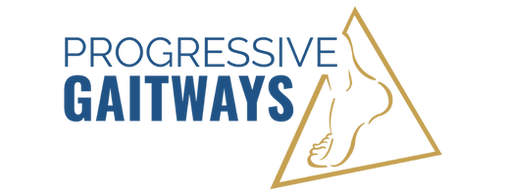Certified TheraTogs Fitter - 1 Lab // For Physical Therapists and Assistants, Occupational Therapists and Assistants, and Orthotists
Measure thoracic and pelvic alignment and don TheraTogs garments and strapping to optimize sagittal-plane posture and bodyweight loading on the feet.
Upon successful completion of the lab, you'll receive a Certified TheraTogs Fitter - 1 credential within two weeks.
Certified TheraTogs Fitter - 2 Lab // For Physical Therapists and Assistants and Orthotists
Measure hip rotation and femoral torsion, and don TheraTogs garments and strapping to address pelvic retraction; enhance stance-phase stability; and reduce in-toe and out-toe gait due to proximal factors.
Upon successful completion of the lab, you'll receive a Certified TheraTogs Fitter - 2 credential within two weeks.
Please note: Certified TheraTogs Fitter - 1 Lab is a prerequisite for Certified TheraTogs Fitter - 2 Lab. And to enroll in Lab 2, you must have successfully completed both on-demand courses.
This course is truly amazing and so informative. Billi is simply brilliant! I learned so much and know I will be returning to my notes and possibly this course throughout my career. I wish I had taken this years ago and strongly recommend to everyone!
Billi has amazing in-depth knowledge on this subject which she presents in great detail in an accessible, webinar format. Her customer support team are also excellent and responded to my emails quickly and efficiently. I would highly recommend this course to all my physio colleagues.
Incredibly in depth on all facets of functional use and the importance of alignment, mass practice, conducting measurements, and using the findings to guide treatment.
This course was great and it was awesome to be able to do it online. It is an excellent tool and will go really well for a number of little ones in my clinic. Some of the terminology was tricky to get used to given I am from Australia however I eventually got it!
Showed me how much I don't know after over 40 years in the field of Orthotics and I am looking forward to learning more from Beverly and her outstanding hard work and study.
This course was extremely informative and gave me inspiration to look into detailed skeletal assessments of my clients! Excellent course that I will recommend to all pediatric PTs.
All sessions were easy to understand with examples and "real-time" explanations of specific issues we address with our patients in every day clinical practice. Loved the fact that some of the review questions were thought- provoking instead of simple evaluation of how much we've been paying attention to the videos
I've never attended a course like this before. I would recommend to anyone who works with kids. From clinical experience to science to evidence - very informative course! And Billi is such a great teacher.
Messy, heavy, and hot plaster casts? They’re history.
Sticky, itchy fiberglass? Not anymore…
Are off-the-shelf splints just too cookie-cutter to be effective? No need to compromise client comfort and progress.
Stressful applications — get it right, or cut it off and start over? Nope — just unzip it, rewarm it, and reform it!
Code-verified (by PDAC) for L2116. Other possible (non-verified) codes: L1960, L2108. Fitting and adjustment may be reimbursable under CPT 97760 in some cases, if those services are not otherwise covered by the applicable L-code.
Think of her as your clinical confidant
At the helm of all of this is Billi Cusick, an internationally-recognized pediatric therapist, instructor, and author whose specialty is the orthopedic and orthotic management of children with cerebral palsy and other neuromotor deficits.














